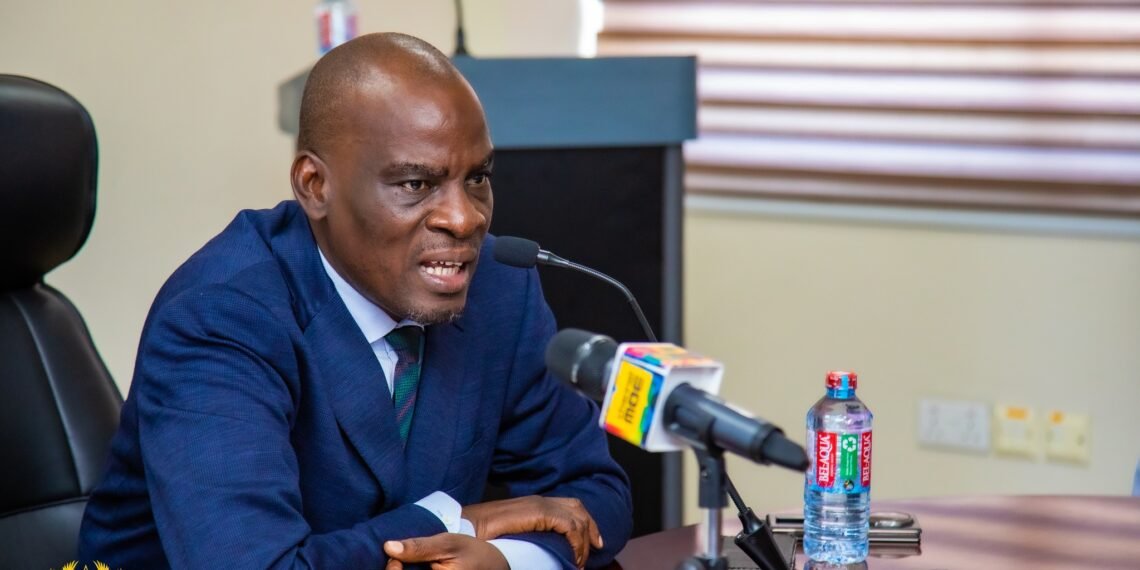In a bold move aimed at reforming Ghana’s scholarship regime, the Minister for Education, Hon. Haruna Iddrisu, has laid before Parliament the Ghana Scholarships Authority Bill.
The laid bill is a landmark legislative proposal designed to reform the country’s public scholarship system and root out entrenched cronyism and nepotism.
The bill, which signals the government’s commitment to building a more transparent and merit-based system, seeks to transform the existing Scholarships Secretariat into a statutory body with enhanced oversight and a renewed developmental mandate.
Presenting the bill to Parliament, Hon. Haruna Iddrisu did not mince words about the failings of the current regime.
He acknowledged that the existing scholarship framework has long suffered from a lack of fairness and accountability, favouring individuals with political or personal connections rather than those who demonstrate genuine academic merit or financial need.
“The policy underpinning this bill is to deal with nepotism and cronyism associated with the award of scholarships. We want to strengthen the Ghana Scholarships Secretariat into an Authority to administer scholarships meritoriously to deserving Ghanaian students. Need will be a defining value of the Ghana Scholarship Authority if established.”
Hon. Haruna Iddrisu, Ghana’s Minister for Education
The Education Minister explained that the proposed Authority will have the power to redesign the process through which scholarships are awarded, ensuring they target students whose academic performance and financial circumstances meet clearly defined criteria.

Furthermore, he emphasized that the Authority would focus on fields deemed critical to Ghana’s national development priorities.
“The manpower needs of the country and the aspirations of the country—if we are emphasising science, mathematics, and education—will be the preoccupation of the Scholarship Authority.
“Largely, Mr Speaker, [this bill is] to respond to the nation’s desire for us to reward merit, whether in need or academic, so that scholarship goes to those who deserve it meritoriously.”
Hon. Haruna Iddrisu, Ghana’s Minister for Education
The bill is widely seen as part of the broader reforms promised by the John Mahama-led National Democratic Congress (NDC) administration, which secured a decisive victory in the 2024 general elections.
The party had campaigned heavily on a platform of transparency, equity, and institutional reform, pledging to overhaul the way public resources, including scholarships, are allocated.
Opposition’s Input
However, the bill was not without constructive criticism. Minority Chief Whip Frank Annoh-Dompreh welcomed the legislation’s intent but urged the Minister to expand its scope by embedding decentralisation mechanisms in its framework.
He contended that the current centralised model has inadvertently excluded students in underserved or remote regions who might lack access to Accra-based systems of application and processing.
“It’s not just about meritocracy. The previous government, I recall, made a call for the Scholarships Secretariat to be decentralised, and the previous NPP government set the tone.
“We shouldn’t just focus on meritocracy or that aspect. We should also focus on decentralising the Scholarships Secretariat. That, for me, will be the trust and the game changer.”
Minority Chief Whip Frank Annoh-Dompreh
The issue of decentralisation has long been a sticking point in education policy debates in Ghana. Many education advocates have argued that regional disparities in access to educational opportunities, including scholarships, continue to deepen the divide between urban and rural students.

The Minority Chief Whip’s remarks reflect growing concern that a centralised system, no matter how transparent, might fail to deliver equitable outcomes if regional barriers to access are not addressed simultaneously.
Civil Society’s Support
Meanwhile, civil society groups have greeted the bill with cautious optimism. One of the most vocal supporters of the proposed reform is Kofi Asare, Executive Director of Africa Education Watch (Eduwatch), a policy think tank that has for years advocated for an overhaul of Ghana’s opaque scholarship system.
In a public statement, Kofi Asare hailed the bill as a milestone in the country’s education policy history and a direct response to the consistent advocacy of Eduwatch and other stakeholders.
“In April 2024, Africa Education Watch submitted a proposal to the government for the establishment of a Scholarship Authority, aimed at reforming a non-accountable public scholarship system that served mainly political party loyalists. No response.”
Kofi Asare, Executive Director of Africa Education Watch (Eduwatch)
Subsequent to the above development, Kofi Asare indicated that Eduwatch further engaged the NPP and NDC 2024 manifesto committees on the same and later in April 2025 submitted a memorandum to the Ministry of Education on the same matter.
Kofi Asare described the development as a long-awaited leap toward restoring public confidence in how educational opportunities are distributed in Ghana.

He noted that past practices, in which scholarships were managed from the Office of the President without a clear legal framework or institutional checks, bred opacity and politicisation.
As Parliament prepares to debate and consider amendments to the bill, the need for public engagement and participation is very critical and important.
The transformation of the Scholarships Secretariat into a legally mandated Authority must reflect the needs of Ghana’s diverse student population and address both merit-based and access-related challenges.
The Ghana Scholarships Authority Bill, if passed, will not only mark a turning point in the governance of scholarships but also send a strong signal that the Mahama administration is serious about its Reset Agenda.
READ ALSO: President Mahama Commits to Maximising Ghana’s Natural Resources




















